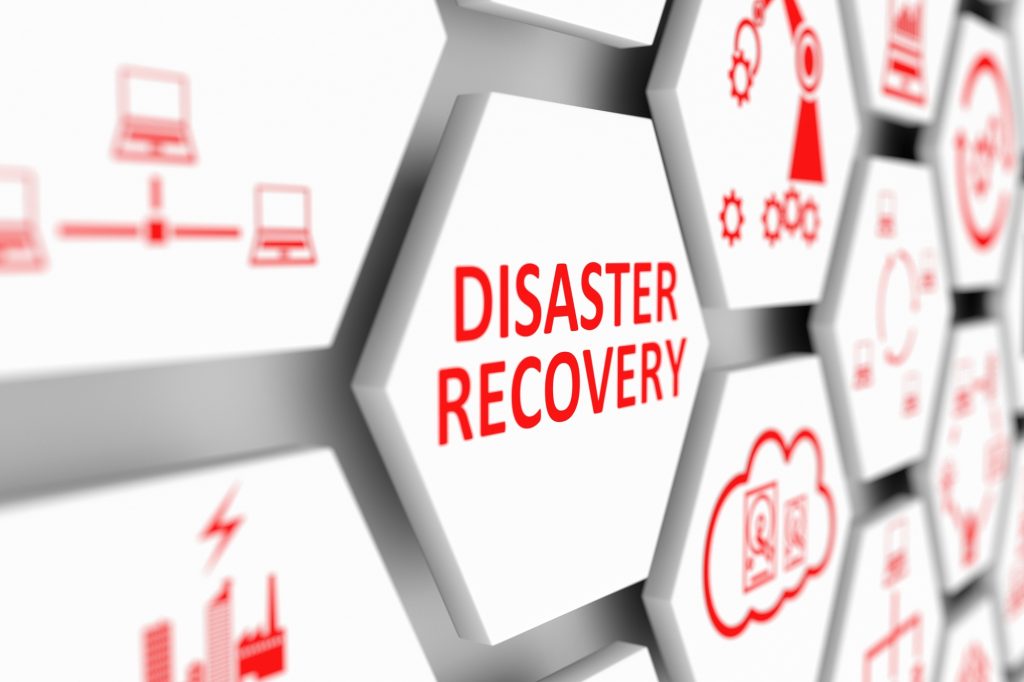Is your business ready to handle a data disaster? If all your electronic documents and information are lost, how will your business survive?
25% of small businesses in the UK don’t have a data disaster recovery plan in place. 80% of businesses that went through an IT disaster failed within 18 months of their data loss event.
Data is fragile. If your business doesn’t have an IT disaster recovery plan already in place, it’s time to create one.
Understanding a data disaster plan and why your business needs one is very important. Read this handy guide and you’ll have all the detail you need to start the process of creating and integrating a suitable plan. You’ll then be well-equipped to find and work with a data centre partner that serves the needs of your business to the highest possible standard.
What is a data disaster recovery plan?
To be clear, this article does not cover business continuity planning. A data disaster recovery plan sets out a business’s workflow in the event of a disaster that wipes out electronic data, documents, and information. Wider business continuity plans put in place the processes that ensure the physical business can continue should a disaster occur.
The term disaster covers a multitude of potential events. Anything from terrorism to extreme weather and more can be included in this term.
Business stakeholders and investors expect data disaster plans to be in place so that in the event of the worst-case scenario, the business will not succumb to that data loss.
There are many different types of DR plan that your business can implement. These include prevention, detection, and correction plans. The best IT disaster plans naturally include elements of all three.
The prevention element of a plan aims to stop a disaster happening in the first place. Proper data storage, backups, and power protection are all part of the preventative approach. Outsourcing your data storage to top-quality data centers is a smart way to engage in proper disaster prevention.
Detection of imminent threats to your data is also highly important in avoiding a devastating loss. Routine system inspections should form part of any solid data DR plan.
Correcting data loss is an internal business function and should form part of any good plan. Investing in insurance against data loss will allow your business to correct any damage more quickly and completely. You’ll also need all key internal stakeholders involved in the data protection and recovery process to be ready for immediate action in the event of a data disaster.
Understanding these core elements of an IT disaster recovery plan will mean you’re in a good place to integrate such a plan to your operation. Having that plan in place ahead of a disaster, rather than scrambling to create one in the aftermath, is the smartest IT-related move you can make for your business.
Why does your business need an IT disaster recovery plan?
The threat of data loss is very real. Whether the threat is natural, environmental, or human, there are more and more instances of data loss in the UK every year.
Environmental disasters are less common in the UK than in some parts of the world. Outside of flooding, there’s a very low chance of a natural disaster, such as a hurricane or tornado wiping out your premises. A less severe environmental issue, such as a fire, will be more likely.
But in the UK, the biggest threat to your data comes from hacking. 88% of UK businesses have been subject to a cyber attack in the past year.
Dealing with the cost of losing your data and your business being unable to function as a result is a primary driver for implementing a recovery plan. If you lose your data and your business is unable to fulfil its responsibilities to its clients, it has the potential to cost a lot of money. The downtime your business experiences during a data loss event can also be highly damaging to your organisation’s reputation.
Chances are, you employ humans. Humans are wonderful creatures. But humans are also fallible. Your business needs a way to recover lost data quickly, because it’s all too likely that human error will, at some point, cause your business to lose data in one way or another. You can’t eliminate the possibility of a mistake, but a good data disaster recovery plan will help your business get back on track far sooner.
Hardware, much like humans, also isn’t perfect. Even without a natural or environmental incident, there’s a chance your hardware will simply fail. If your systems go down and you don’t have a recovery plan in place, it’s going to get expensive. You’ll have to replace or repair your machines, and you’re not going to have the data and documents you need to do your work.
What steps should you take to ensure your business can survive a data loss event?
Plan ahead. That’s the most critical component here. And that’s the point of a data disaster recovery plan.
Find a reputable data center that can assist with DR as standard. Talk to them about how your business can create a plan that’ll work properly for you in the event of a disaster. There’s a decent chance that your organisation won’t have adequate data recovery expertise in-house. Don’t try to do everything on your own, because you’ll likely need specific expertise and experience to make a plan that will work across the board.
There are steps your business can take to reduce the impact of any data disaster, even if you don’t have a recovery plan in place at present. These steps work no matter the size of your business, but are especially important for smaller businesses without dedicated IT departments or third party services.
Make sure you know your data. Work out which files and directories are crucial to the survival of your business. Assess your documents closely; you can assign a priority and importance score to the data your business produces / uses.
At the very least, you should have some form of data backup. Ideally, this backup will be offsite, in the cloud. But if for some reason you’re unable to do that, there should be regular internal backup functionality built into your workflows.
Make sure your business is ready for the worst
A data disaster will, at some point, impact your business. It’s simply a reality most businesses will have to face. The level of impact will depend on the quality of your data disaster recovery plan.
Creating and implementing a plan should be top of your to-do list.
Contact us today to learn more about data recovery plans, and how we can help you reduce downtime, reduce risk, and make sure your business recovers strongly in the wake of a data loss event.



